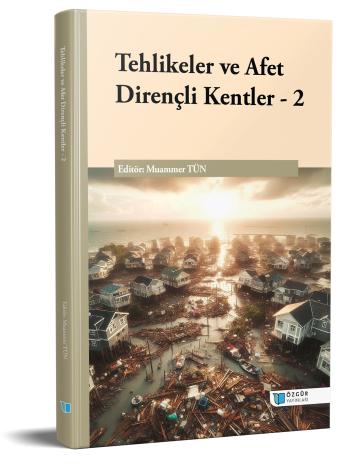
Sustainable Infrastructure Solutions for Critical Infrastructure
Chapter from the book:
Tün,
M.
(ed.)
2024.
Hazards and Disaster Resilient Cities II.
Synopsis
This study examines strategies and practices for making critical infrastructure components (transportation, water and wastewater management, health, communication, and energy) sustainable and resilient in the context of disaster management. The aim of the study is to enhance the resilience of infrastructure in the face of disasters and to share knowledge and experiences obtained from successful practices worldwide.
The primary objective of the study is to identify the strategies necessary to increase the resilience of critical infrastructure components against disasters and to provide examples from cities around the world that have successfully implemented these strategies. In this regard, the study focuses on how infrastructure systems capable of providing uninterrupted services during disasters can be developed and how existing systems can be improved. The study is structured around five main components: Transportation Infrastructure, Water and Wastewater Management, Health Infrastructure, Communication Infrastructure, and Energy Infrastructure.
Within this framework, the study will provide information on the design and implementation of disaster-resilient transportation systems, and will explain the innovative transportation solutions of cities such as Sydney and Amsterdam and their roles in disaster management. Sustainable water management and adaptation strategies to climate change will be discussed, along with the success factors of water management projects in cities like Amsterdam and Semarang. Infrastructure solutions for effective healthcare services during emergencies will be presented, including projects in cities like San Diego and Sydney and their roles in disaster management. Emergency communication systems and technologies developed to ensure uninterrupted operation during disasters will be evaluated using examples such as the LinkNYC project in New York City. Innovative and sustainable energy solutions to ensure uninterrupted energy supply will be illustrated with examples like self-sufficient solar-powered houses in Freiburg.

